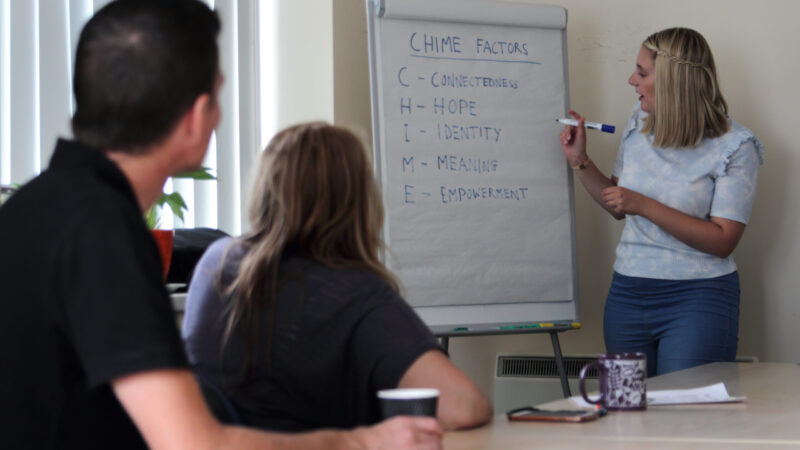
My name is Rob and since my late teens I’ve lived with Depersonalisation-Derealisation Disorder (DPDR).
It’s a strange condition that’s hard to explain. At times it has felt like I’m stuck behind a veil, disconnected from everything around me. Everything I see looks distorted – sometimes it’s like things are oddly shaped, or they seem to be too bright, or too far away. It’s like I’m not quite present in the world, and I often feel detached from myself, as if my body doesn’t fully belong to me.
There are also moments where it feels like I’m not in control of my own actions. For about 30 minutes at a time – usually triggered by stress or social situations – it can feel like I’m watching myself from the outside, as if my voice isn’t really connected to my thoughts. It’s disorienting and frightening. Along with this, I often feel emotionally numb, or like my emotions don’t fit the situation. I might feel nothing when I hear bad news, or unexpectedly happy when it doesn’t make sense to be.
The hardest part of all of this was that I didn’t know what was happening to me. For a long time, I just assumed this was something I had to live with. I only started understanding what I was going through when hitting rock bottom, after being hospitalised for an alcohol detox and assessed by a psychiatrist. That’s the first time someone was able to explain my actions by something other than my coping strategy manifested in alcohol misuse, and later down the line this then lead to a diagnosis of DPDR.
I initially tried to juggle both dealing with the pressures of a high intensity job, as well as undergoing treatment, however this became too much, and I had to prioritise my health and go on sick leave. I heard about a local mental health Recovery College from an ex co-facilitator at a men’s support group, who suggested I reach out and get involved. From day one, when being registered with the college, I felt welcomed and accepted for who I was for the first time in a very long while.
The college provides a range of support options for those with mental health issues; I was able to go on courses to learn more about depression/anxiety (which are increasingly common in modern society) as well as sessions involving topics such as neuro-divergence. The weekly photography walk has become part of my routine! The sessions are up to 10 students plus one facilitator and co-facilitator. Typically, both the facilitators and the students have lived experience of mental health conditions, however the college is also open to NHS staff who want to learn more.
I cannot stress enough how important and life changing this service has been, sitting alongside my more clinical treatment from the Depersonalisation Disorder Service at South London & Maudsley NHS Foundation Trust (the only specialised service for my condition in the UK).
For the first time, I realised I wasn’t alone. I wasn’t the only one living with mental health issues, and there were others who truly understood what I was going through. Just hearing other people talk about their experiences made me feel less isolated. It helped me feel more confident and less afraid of my condition. The support and reassurance from others who are on similar journeys has been incredibly healing.
Now, having decided that a career break is needed, I have put my energy and efforts into becoming an Involvement Peer with my local NHS mental health Trust. My first step was becoming a co-facilitator for the mental health courses at the recovery college, working alongside experts by experience, being able to both learn and help others in the process. However, beyond that, the Involvement Team has been giving me weekly updates on opportunities to get involved in activities around the Trust, so I am now getting involved in everything from training clinical psychologists to helping influence high level NHS processes.
I truly believe in what the recovery college is doing, and I can’t thank them enough for the support they’ve given me and so many others. Keep doing what you’re doing. You’ve helped so many people like me, and you’re making a huge difference.